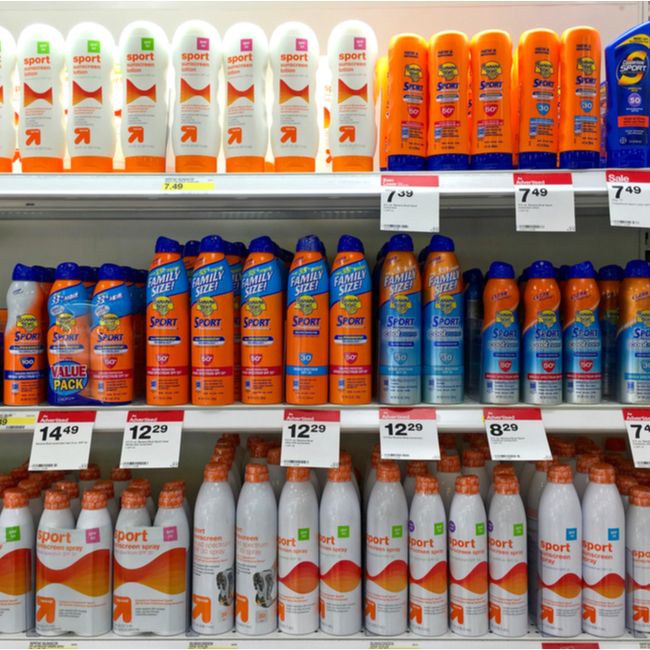
1. Suncreen
First and foremost, Dr. Nazarian stressed the importance of protecting your skin against damage from the sun
All this sounds obvious, the type of sunscreen I recommend is really specific," Dr. Nazarian said, "I like the sunscreen that’s not only broad-spectrum, to block ultraviolet light, but I also like one that is tinted. This gives me the greatest shield against multiple types of skin aging lately. I typically recommend TruPhysical sunscreen by a brand called Revision."
You can find the Revision TruPhysical sunscreen at Dermstore for $76 or shop a less expensive option here.
2. Antioxidants
[Antioxidants] are one of the easiest ways to neutralize free-radical damage that ages skin: from pollution, visible light, and many other environmental sources," Dr. Nazarian said. "I recommend all my patients use a topical antioxidant, such as altodefense by skinbetter science, and also an oral supplement that contains antioxidants called Heliocare® Daily Use Antioxidant Formula."
3. Retinol
According to Dr. Nazarian, retinol is one of the most studied ingredient to help with skin aging.
"This vitamin A derivative can improve skin texture, pigment and early signs of aging, even fine lines and wrinkles," she explained. "The key is to start slow and low, using a small amount 1-2x a week until your skin adjusts. It’s not a quick process, but it’s science-backed.
Start shopping for a few of our favorite retinol serums here.
4. Gentle Cleaning
Dr. Nazarian explained, "One of the worst things you can do to your skin is aggressively cleaning. By stripping the natural hydration barrier, skin looks older faster. Be sure you’re using a gentle cleanser to gently clean your skin twice daily. When the moisture barrier is intact, skin remains soft, smooth, and calm, while wrinkles and fine lines look less noticeable.
You can discover one of our favorite gentle cleansers here.
5. Temperature Control
"Many people don’t realize what extreme temperatures can do to their skin," Dr. Nazarian told us. "Repeated exposure to high heat can trigger an inflammatory, skin-flushing cycle for many people… leading to enlarged pores, uneven skin, and splotchy redness over time.
Skin performs best at average temps- not too hot, not too cold- so I often encourage my patients to turn down the temperature of the water in the shower, wash their face with lukewarm water, and to keep themselves cool by drinking ice water while working-out or walking around outside in the summer.


